
LinkedIn, the only major Western social media platform with a global reach operating in China, announced on October 14 that it would shut down its current localized version in the country, launching a separate job networking site called InJobs – minus interactive social media features – later this year. The news came through a post on LinkedIn’s official blog by the company’s vice-president, Mohak Shroff, who wrote that the service had been “facing a significantly more challenging operating environment and greater compliance requirements in China.”
It was clear in international news reporting that LinkedIn’s decision was linked to increasingly strict Chinese censorship rules, and to growing criticism in the West that the company was actively censoring posts and profiles in order to remain compliant inside China. In his announcement, Shroff vaguely alluded to censorship issues when he said that LinkedIn had launched in China in 2014 knowing that it would have to abide by the “requirements of the Chinese government on Internet platforms,” and added that the company “strongly support[s] freedom of expression.”
But how was LinkedIn’s closure in China, which many Western news outlets marked as the final and “full decoupling” of China’s internet from the rest of the world, reported from inside the country?
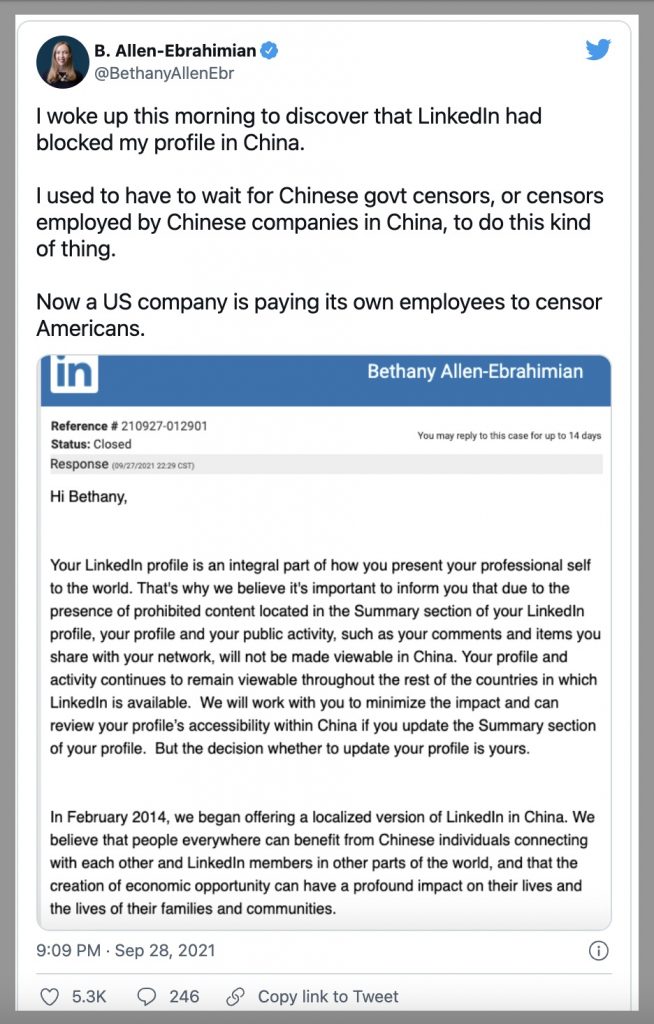
Last Friday, shortly after news of LinkedIn’s China shutdown, the president of LinkedIn China, Lu Jian (陆坚), was busy putting a positive spin on the closure. “The reports of my death are greatly exaggerated,” he quipped on his social media account, attempting a humorous reference to an oft-used misquote of the American writer Mark Twain.
Meanwhile, LinkedIn staff in China were busy debunking “rumors” that LinkedIn services in China were being terminated, emphasizing instead that the moves were a “reconfiguration of strategy.”
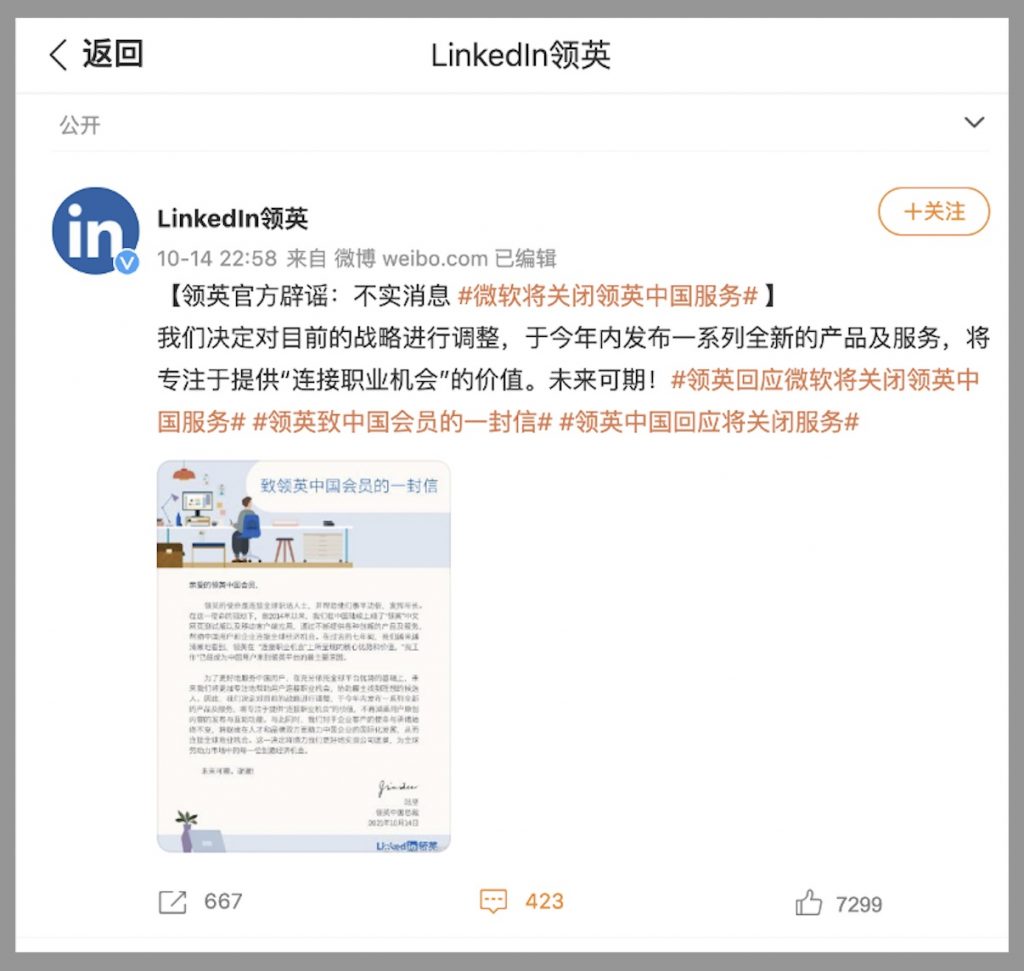
The official Chinese-language statement from LinkedIn, which unlike Shroff’s post did not mention “a significantly more challenging operating environment and greater compliance requirements in China,” said that this strategy change at LinkedIn would provide better service for Chinese customers.
The Chinese-language website of the Global Times newspaper, a spin-off of the official People’s Daily, quoted the LinkedIn China Weibo post as a rejection of the version of the story as reported by Western media, including the New York Times and Reuters, dismissing these as “untrue information” (不实消息). The English-language website of the Global Times did mention Shroff’s remarks about a “challenging operating environment,” but it emphasized Lu Jian’s narrative about a simple reconfiguration to meet the needs of Chinese customers, the company having found that “job seeking is a primary reason our members in China use our localized version.”
The implication from Lu was that there was little need to offer users the ability to share posts or articles, a function that has run afoul of Chinese censors in recent years (although profile pages have hardly been immune from censorship).
Asked by an AFP reporter during a press conference on Friday for his remarks on LinkedIn’s “pullout from the China market,” Chinese Foreign Ministry Spokesperson Zhao Lijian (赵立坚) first pointed the press toward the official LinkedIn statement, and then emphasized that China remained committed to creating a favorable atmosphere for foreign investment. “China is firmly committed to expanding its openness to the outside world and will continue to welcome companies from all countries, including the United States, to invest in China and provide a market-oriented, rule-of-law and international business environment,” Zhao said.
The Beijing Daily, a paper published by the Beijing’s Chinese Communist Party committee, reported on Friday, following the LinkedIn announcement, that the platform was not localized enough to attract Chinese users compared to other domestic job-hunting websites. The article also said that the Chinese version of LinkedIn had been inundated with commercial spam, and questioned whether Microsoft would find greater success with the launch of its standalone InJobs platform later this year.
The headline at Shanghai’s Jiemian News, which shared an image of the official LinkedIn China statement, read: “LinkedIn China to Carry Out Strategic Adjustment, Focusing on Providing Professional Opportunities.” There was again no mention at all of censorship, or of “greater compliance requirements.”
Sina Technology (新浪科技) responded to the LinkedIn news by posting a poll to its official account on Weibo asking readers to indicate whether or not they had used LinkedIn in the past. While just over 2,500 respondents said they had used the service, roughly 4,000 said they had not.
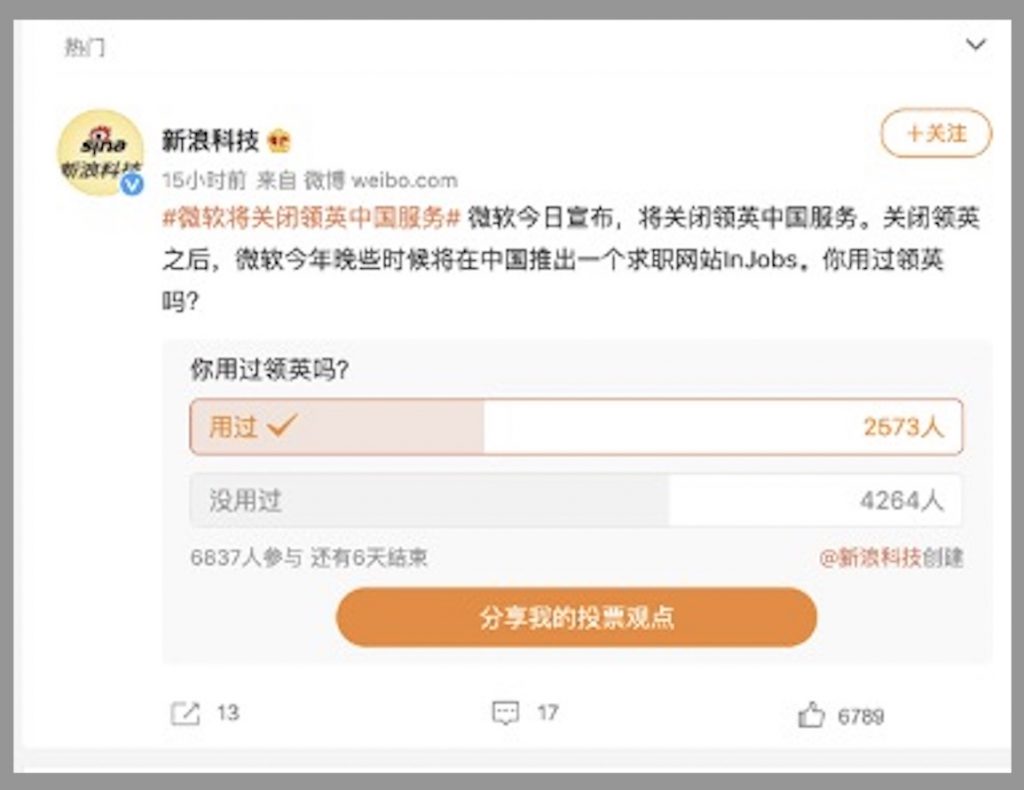
At least some internet users, however, attempted to highlight the censorship issue when sharing reports about LinkedIn’s decision.
Spotting the difference between the statements from LinkedIn in English and Chinese, one Weibo user posted images of both, writing simply: “You can find differences in the Chinese and the English.” The screenshot of the English-language version on the left-hand side of the post was deleted, however, making it impossible for users to read between the lines.
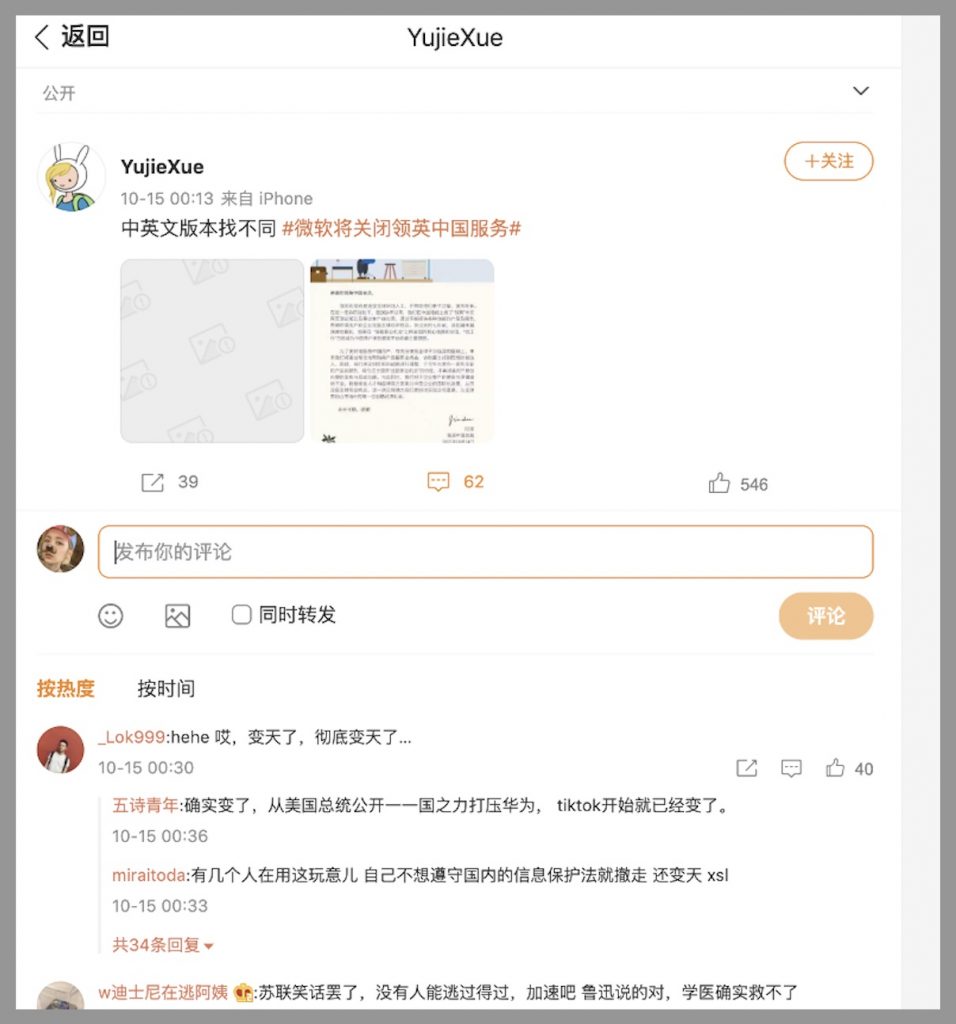
But even when censorship was visible as an issue as the LinkedIn decision was discussed on Chinese social media, some users rejected these concerns as an attempt to smear China’s reputation. The “red V” celebrity Weibo account “Lone Smoke and Twilight Cicada” (孤烟暮蝉), which has more than six million followers, managed to share a screenshot of an English-language report by Reuters with the headline: “Microsoft to shut down LinkedIn in China, cites ‘challenging’ environment.” The post, which said simply that “Microsoft has decided, because of censorship reasons, to pull LinkedIn out of the China market,” was inundated with pro-China comments.
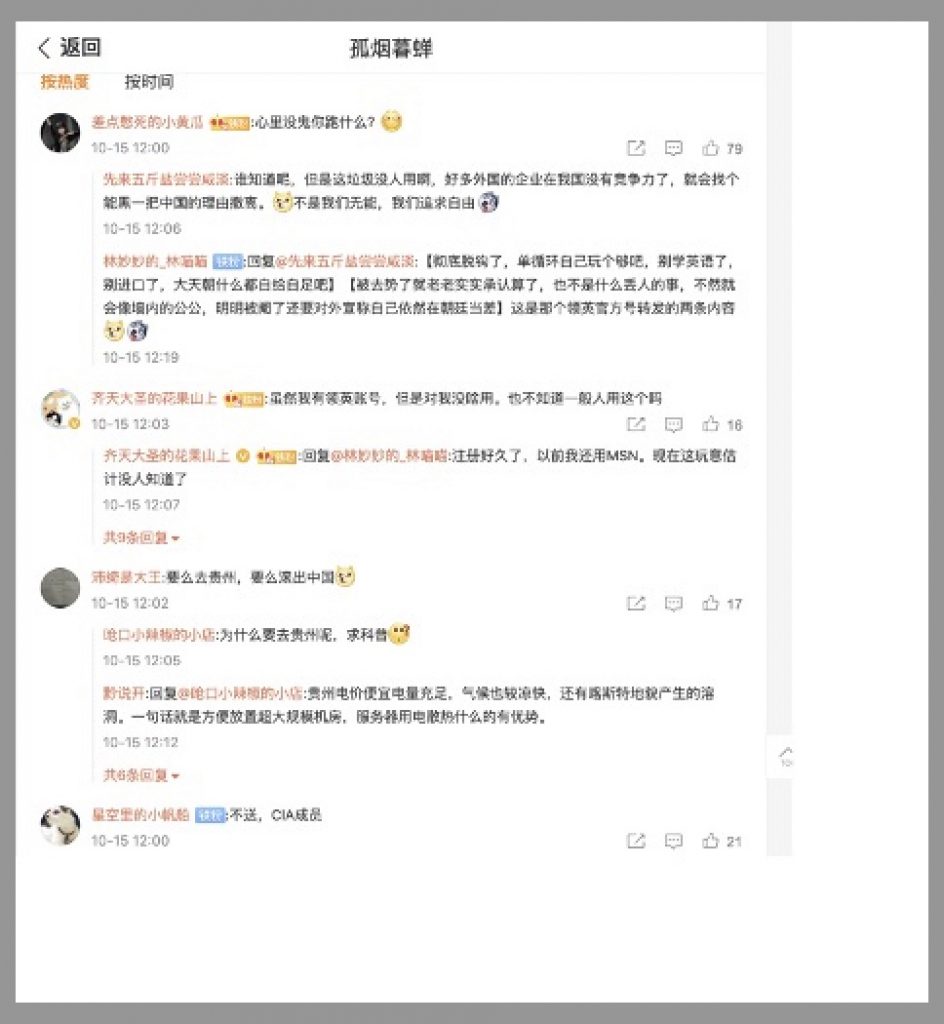
“Why would you leave the market if you have nothing to hide?” said one user, suggesting that the Microsoft service had been up to no good.
Others suggested that the service was simply inferior. “Who knows?” said one, shrugging the post off. “But no one uses this garbage anyway.”
Another comment, mirroring the LinkedIn China campaign to dismiss the service’s departure as a rumor, said: “This is fake news. It’s already been rumor-busted.”
Finally, one comment linked the Microsoft platform to foreign conspiracies against China: “They can see themselves out,” it said. “They are CIA linked.”




















